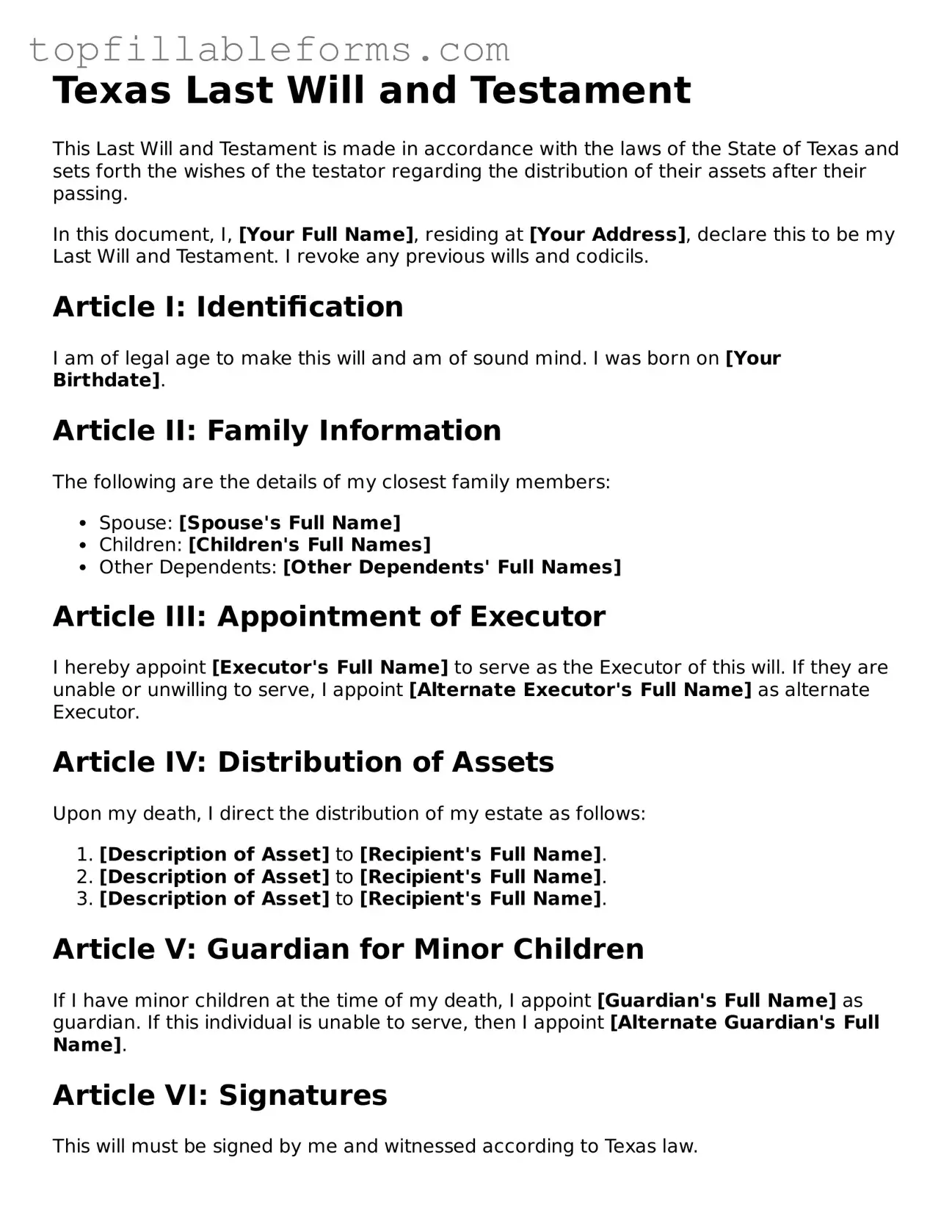Attorney-Verified Last Will and Testament Template for Texas
A Texas Last Will and Testament form is a legal document that outlines an individual's wishes regarding the distribution of their assets after death. This form ensures that personal property is allocated according to the testator's intentions, minimizing potential disputes among heirs. Properly executing this document is essential for the effective transfer of property and the fulfillment of the testator's desires.
Open Last Will and Testament Editor Here

Attorney-Verified Last Will and Testament Template for Texas
Open Last Will and Testament Editor Here
Finish the form now and be done
Finish your Last Will and Testament online by editing, saving, and downloading fast.
Open Last Will and Testament Editor Here
or
▼ PDF File
